The five unmissable stages of the Tour de France 2023: From Bilbao to the Alps
There will be action across all 21 stages, but watch out for these five in particular

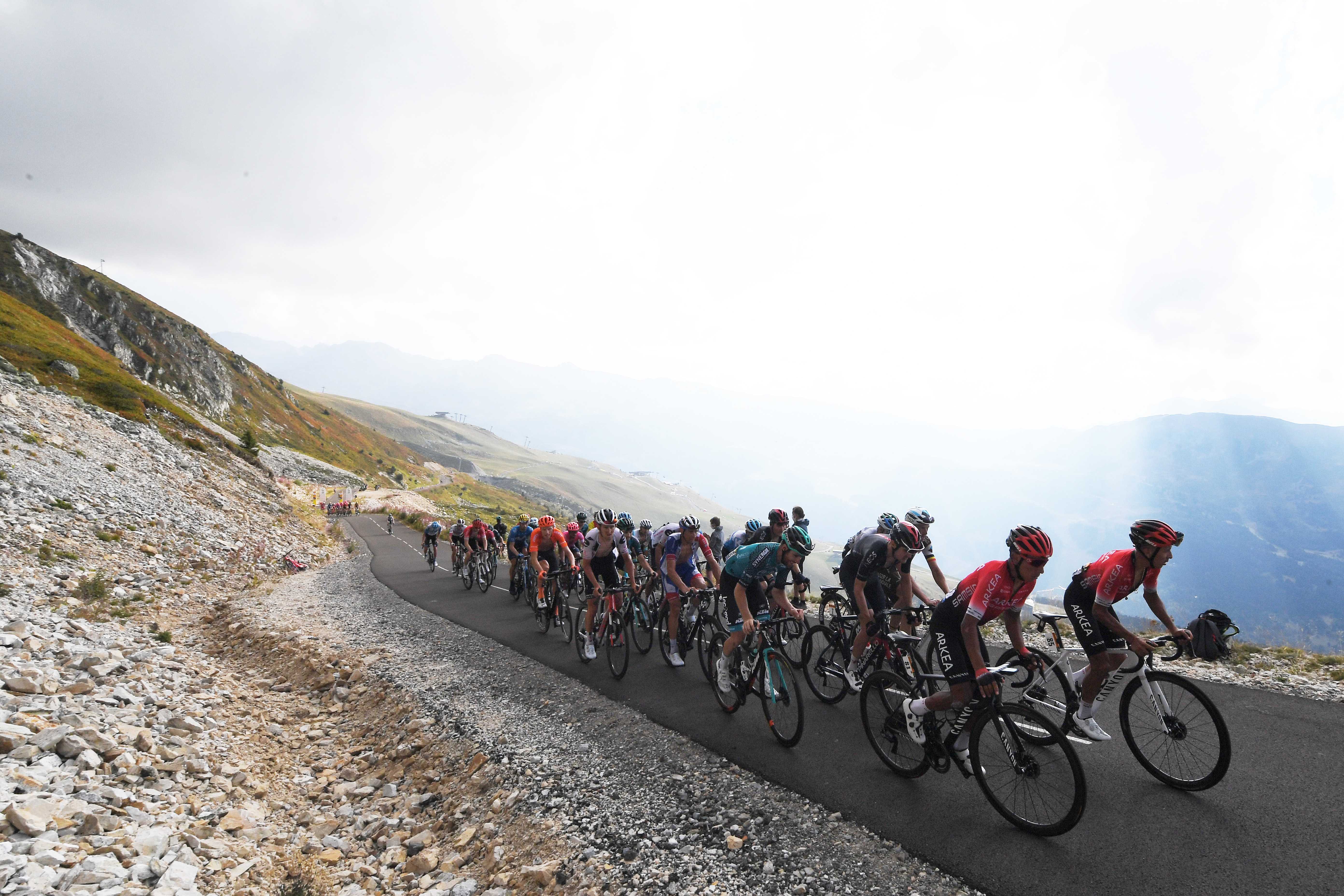
The latest race content, interviews, features, reviews and expert buying guides, direct to your inbox!
You are now subscribed
Your newsletter sign-up was successful
There will be many key moments of the Tour de France 2023, with time to be won or lost at almost any moment, stages to be fought for, and bonus points or seconds on the line. In the 21 days, the riders will tackle 3,404km and 56,400 metres of climbing, with every second counting.
However, while the whole route is daunting, stretching from Bilbao to Paris over three weeks later, there are particular points to watch out for. Now that the start list is starting to be filled, fans and riders alike should be circling these days on their calendars.
Stage one: Bilbao to Bilbao (182km)
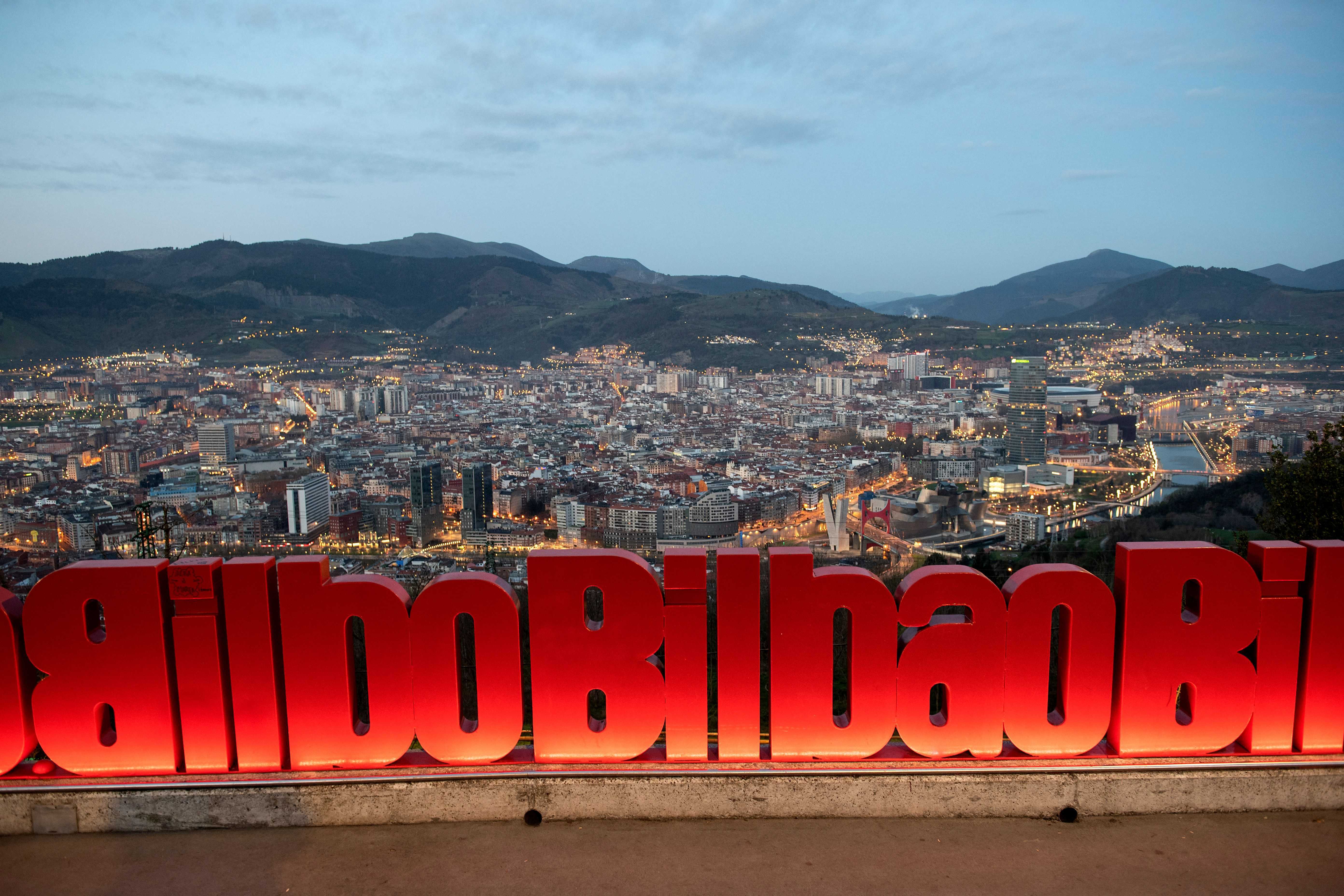
This year's Tour de France properly begins from the gun, with no chance to relax for those general classification hopefuls right from the beginning. 3,221 metres of climbing in 182km points to the fact that this is far from easy, and the final 60km sees four climbs, three categorised, with each one being progressively harder. The Côte de Pike tops out just 7.5km from the line, and then the final kilometre in Bilbao ramps skywards, too.
The winner could be almost anyone - apart from a pure sprinter - with Wout van Aert or Mathieu van der Poel just as likely to triumph as GC rider like Tadej Pogačar. A break is unlikely to go to the finish, but there will still be a fight to get into it, with the mountains points on offer.
It will be a nervous day, much like the opening stages in Brittany two years ago, where Julian Alaphilippe and Van der Poel triumphed amid the chaos. Expect these two, and their puncheur colleagues, to be close to the front. However, with the chance of time losses on the Côte de Pike, there will be lots of riders battling to get close to the front. It does not require too much imagination to foresee a GC rider conceding some crucial seconds on the uphill finish in Bilbao.
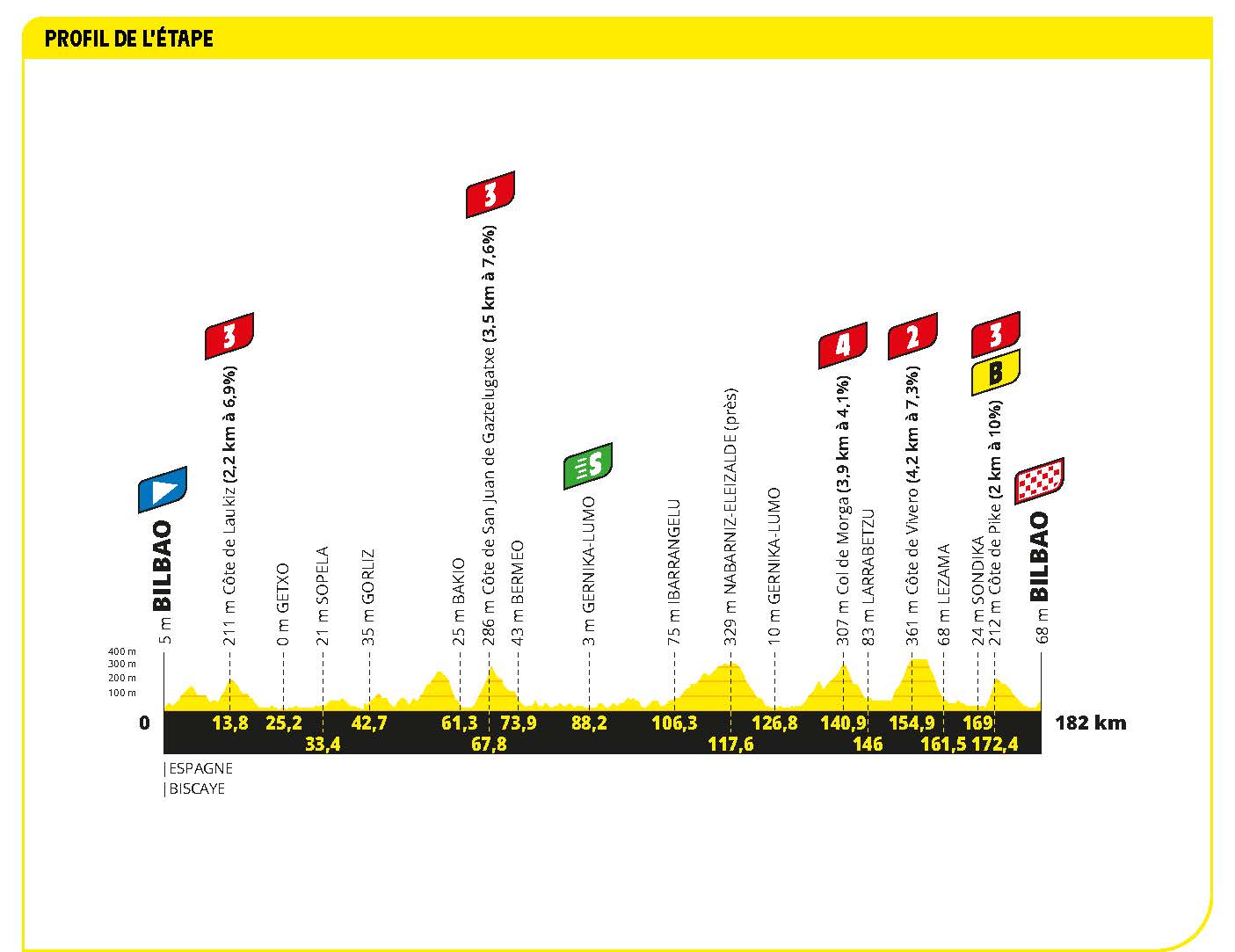
Stage six: Tarbes to Cauterets-Cambasque (144.9km)
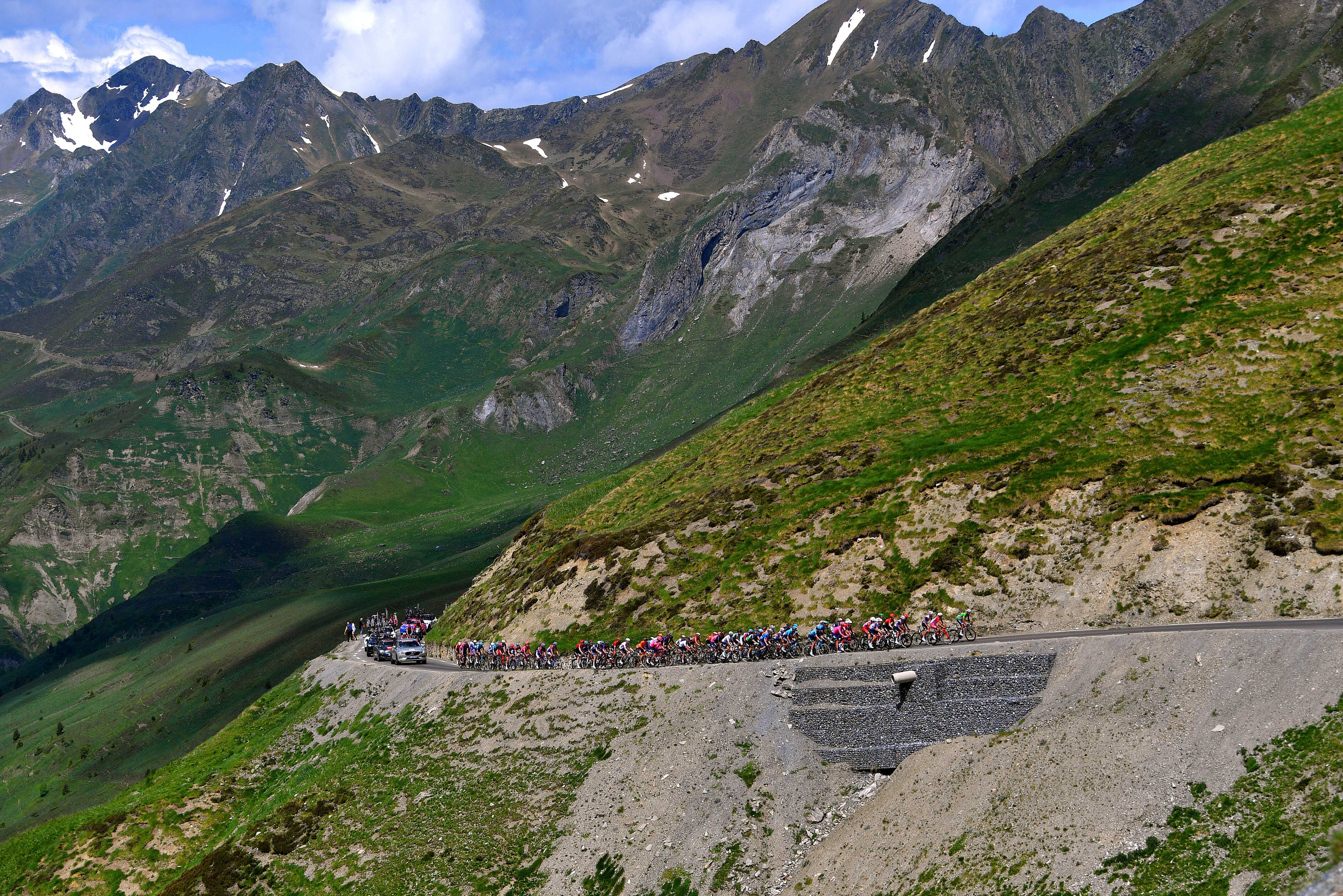
Thanks to Cauterets hosting the finish of stage six, the Tour de France will have its earliest summit-top finish in the Pyrenees since 1981, when Lucien Van Impe won atop Pla d’Adet on stage five and Phil Anderson became the first non-European and Australian to wear yellow.
The Col du Tourmalet looms large, the second hors categorie climb of this year's race, but the final climb up to Cauterets should not be dismissed either. Expect a big reshuffling of the general classification, as all those puncheurs and non-climbers fall down it, and those who really want the maillot jaune as close to the top as possible.
The latest race content, interviews, features, reviews and expert buying guides, direct to your inbox!
The Col d'Aspin and the Tourmalet will reduce numbers, and while the ascent to the Plateau du Cambasque isn’t as tough overall, double-digit gradients just three kilometres from the finish will act as a launchpad for the stage-winning move. 4,000m of elevation mean something will happen, although many will be trying to keep their powder dry this early in the race.
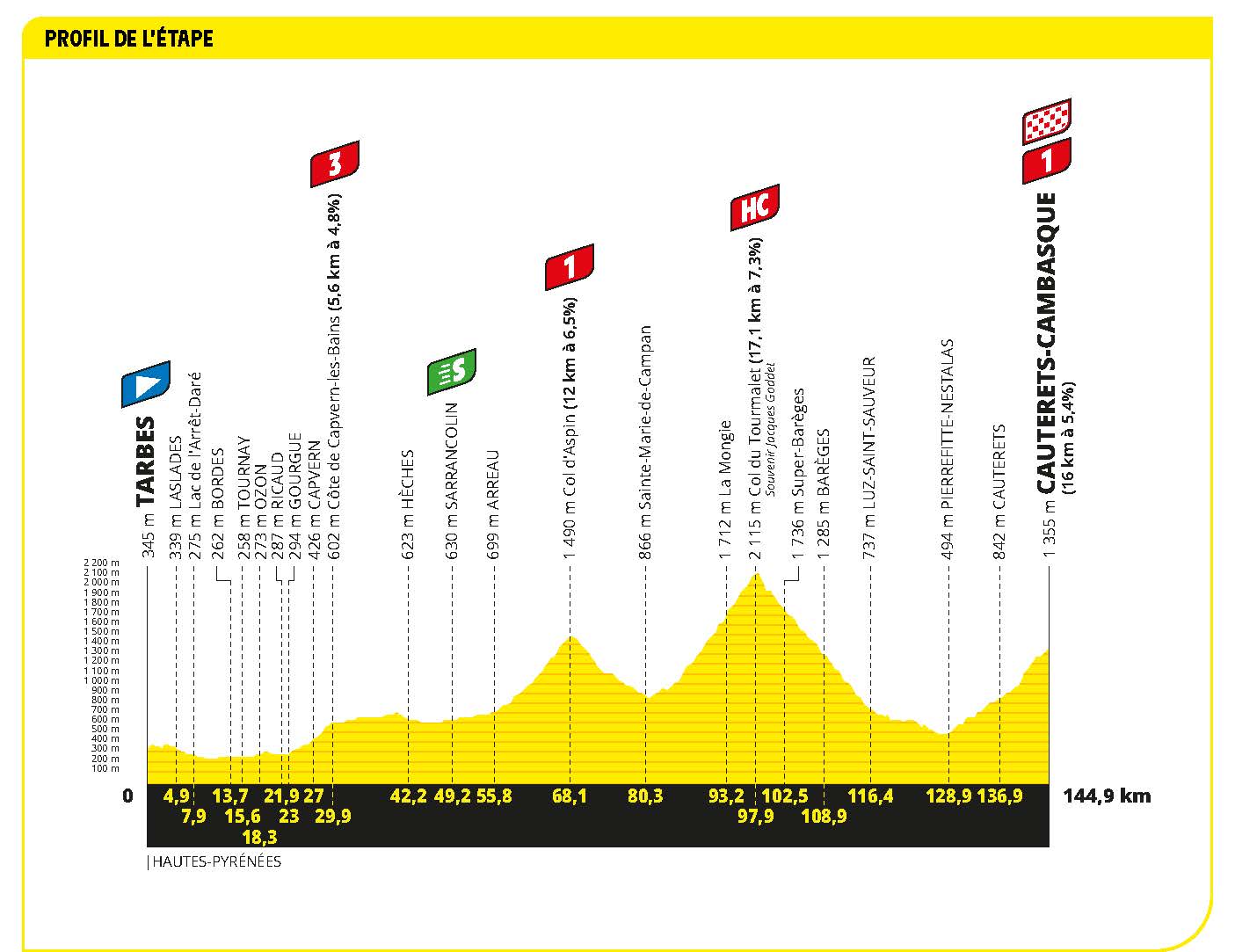
Stage nine: Saint-Léonard-de-Noblat to Puy de Dôme (184km)
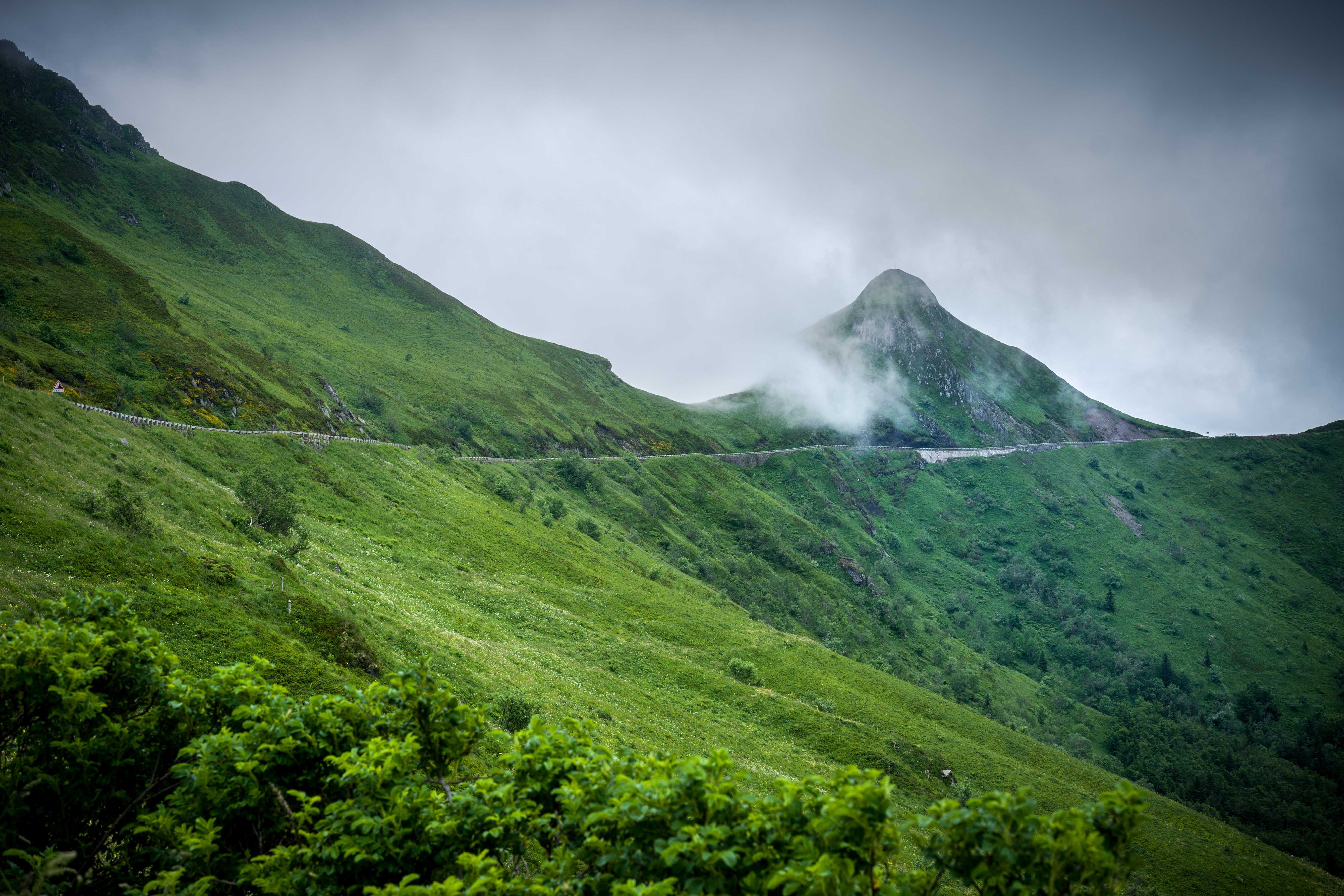
This is the big stage that everyone has been waiting for, with the Puy de Dôme returning for the first time since 1988. It will no doubt have a consequential effect on the overall standings, such is the difficulty of the final ramps.
Coming at the end of a long first 10 days of racing, expect some tired legs on the dormant volcano, but also perhaps some crucial attacks. If it isn't a general classification rider who wins it, it will surely be a specialist climber. The final climb will be must-watch television, and the riders will be ready for the rest day which follows.
Also, pay attention to what Mathieu van der Poel does at the beginning of the race, as the day starts in the village where his grandfather, Raymond Poulidor, lived. It would not be a particular surprise to see the Dutchman make a move from the start.
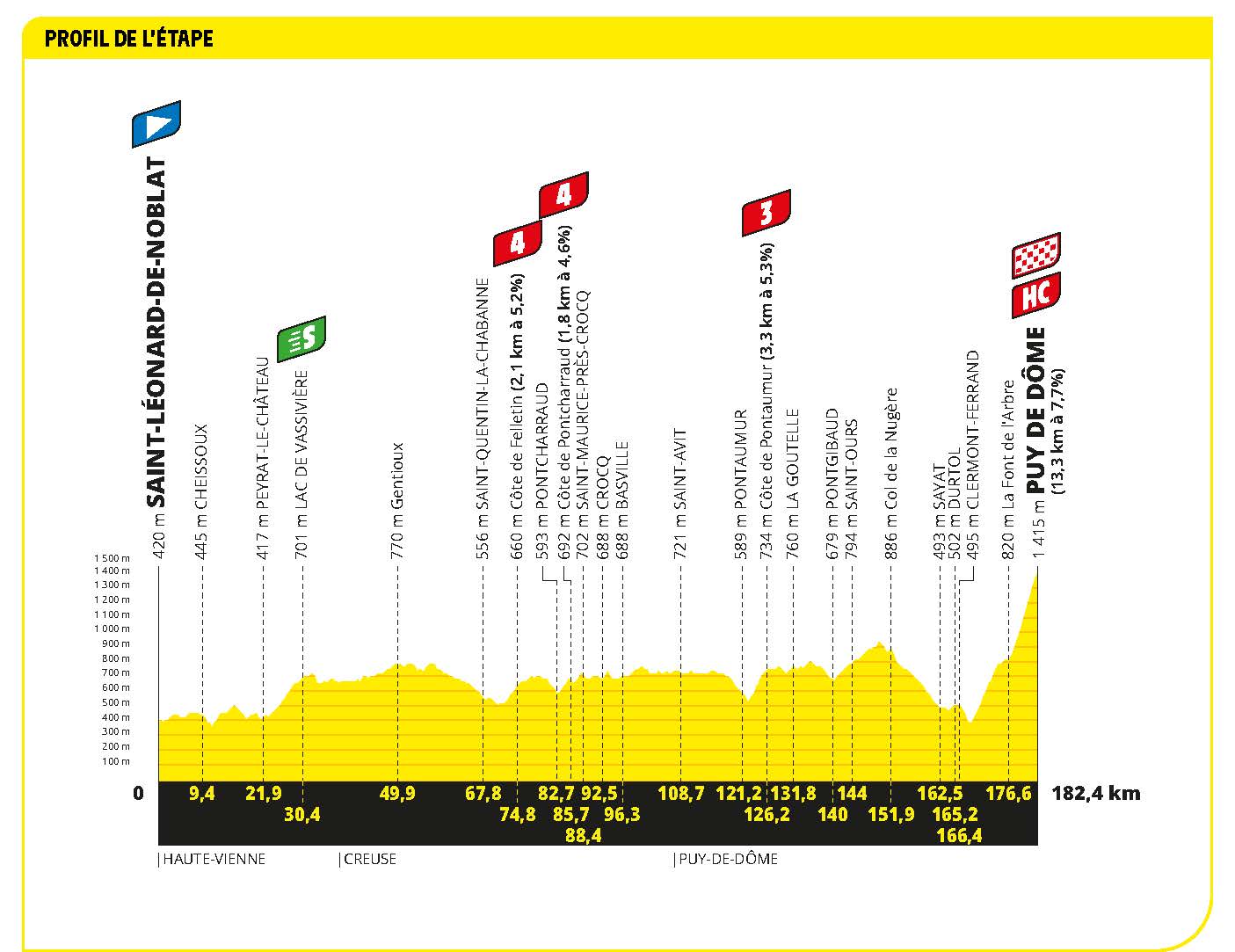
Stage 15: Les Gets Les Portes du Soleil to Saint-Gervais-Mont-Blanc (179km)
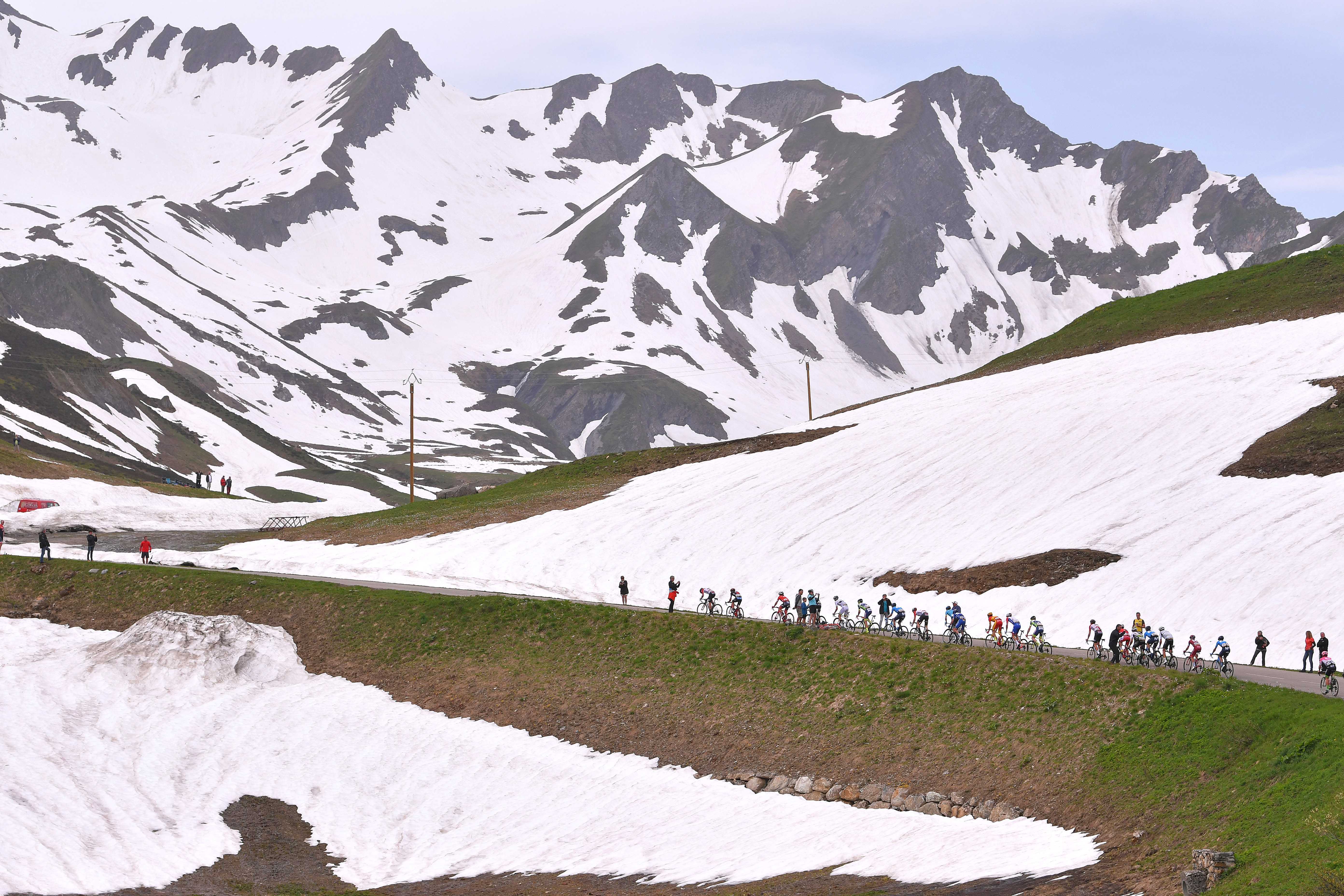
After another hard week in the bike, the day before a rest day will once again be crucial. There's 4,483m of climbing in just 180km on stage 15, which sees five categorised climbs tackled, including the final one up to Saint-Gervais Mont-Blanc. Add in two more proper climbs which are uncategorised, and it will be a tricky day for all involved.
The Col de la Forclaz is the day’s first categorised ascent, and the Col de la Croix Fry and Col des Aravis come just after. The stage finishes with a short, sharp ascent of the Côte des Amerands (2.7km at 11.1%) a prelude to the 7.2km climb to Saint-Gervais Mont Blanc.
It will be a hard day for defending the race lead, with so much terrain for potential attacks to go, and it is the kind of day where one can imagine Tadej Pogačar and Jonas Vingegaard fighting it out among the Alps. The final climb to Saint-Gervais is one to watch for big time shifts on GC.
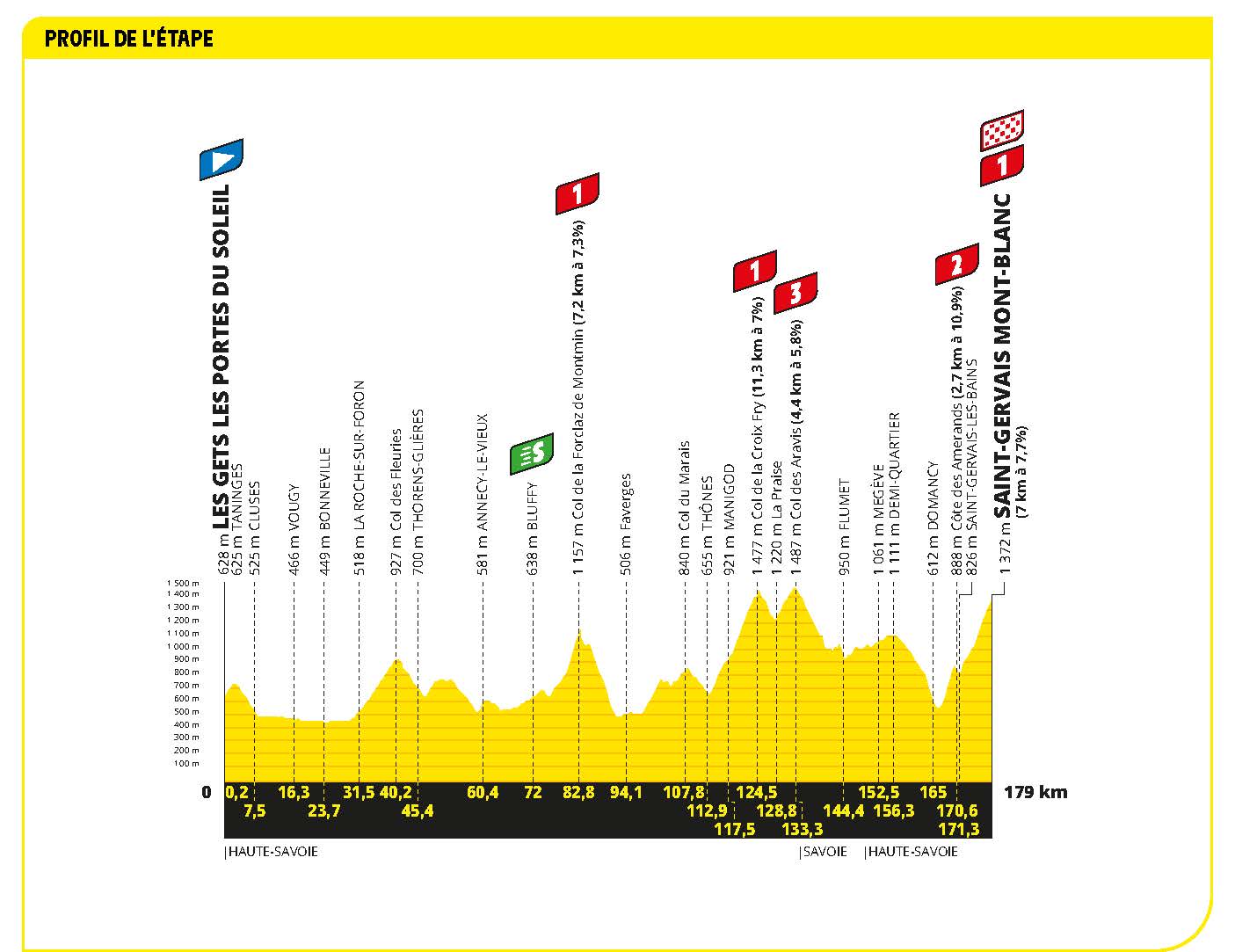
Stage 17: Saint-Gervais-Mont-Blanc to Courchevel (165.7km)
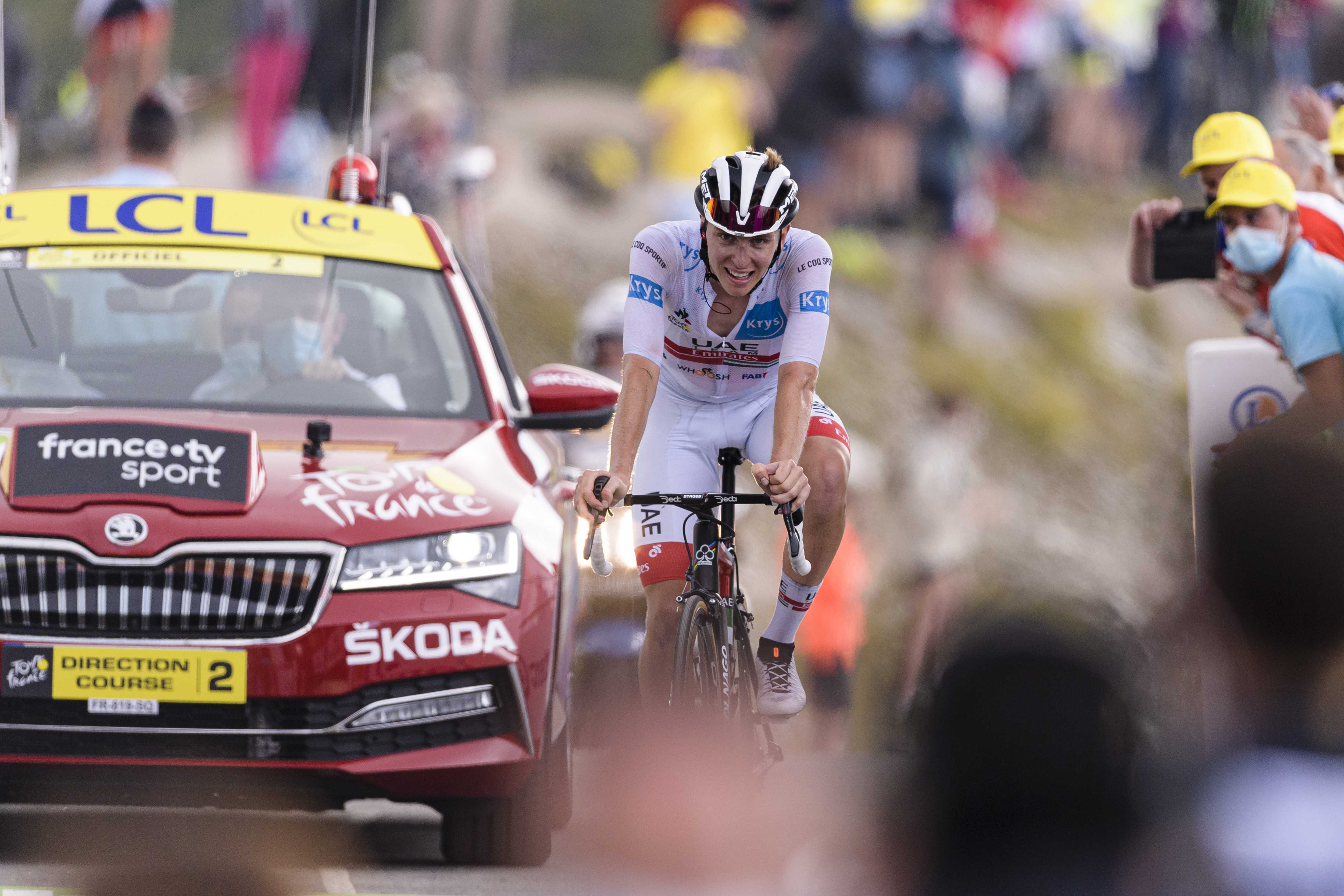
Here it is, the big one. 5,405 metres of climbing on a day which sees two early first category climbs feature before the Col de la Loze. The steep Alpine climb, with 20% ramps, has only been featured once in Tour history, on a day when Miguel Ángel López put 15 seconds into Primož Roglič and 30 into Tadej Pogačar.
There is more climbing this time around, on the Queen Stage, and the race actually finishes in Courchevel after a descent rather than a mountain-top end.
It is on the Col de la Loze, with its ridiculous ramps, that time gaps can really be won or lost, with just a few metres on the vertiginous road leading to seconds of difference. This will be make-or-break for yellow jersey contenders.
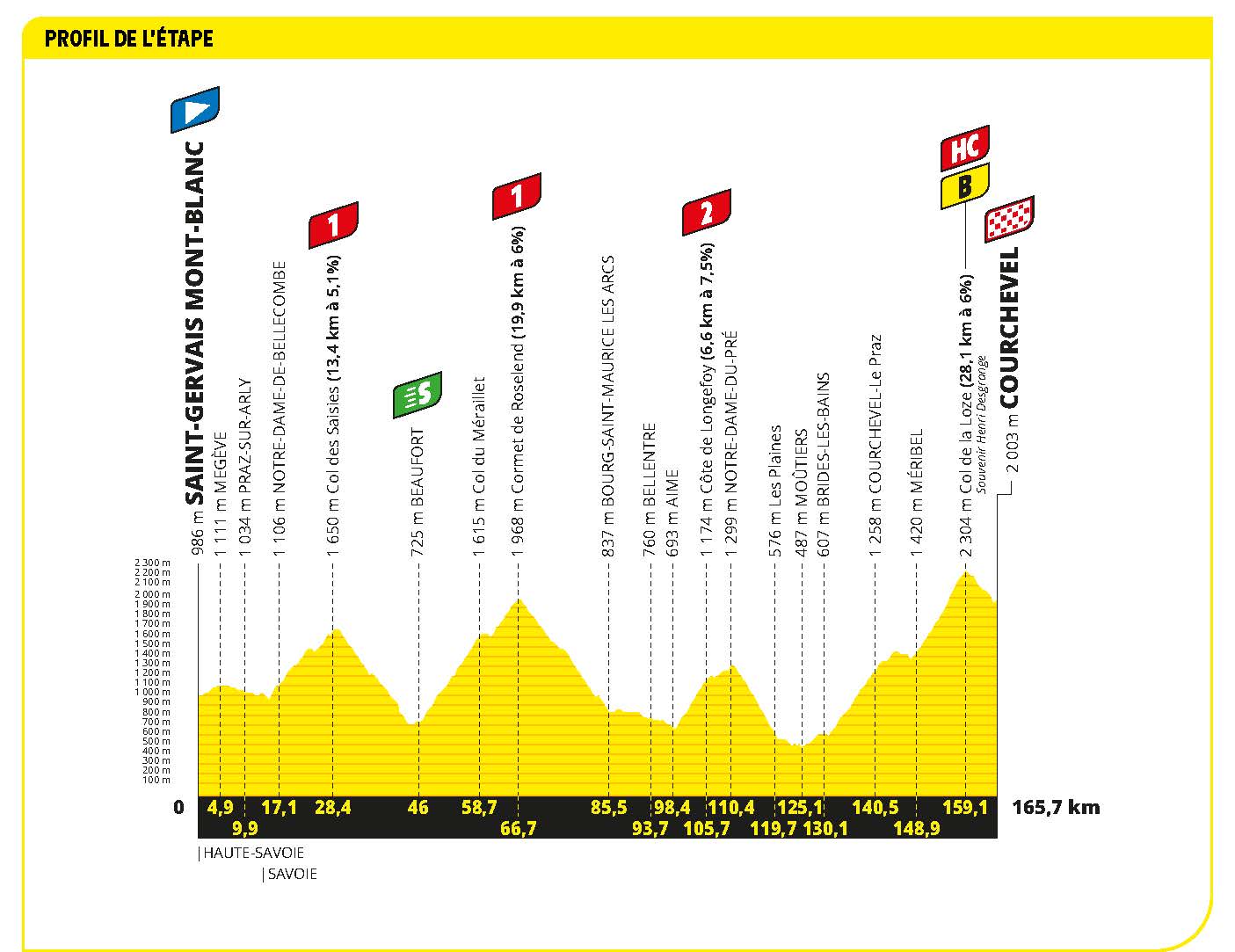

Adam is Cycling Weekly’s news editor – his greatest love is road racing but as long as he is cycling, he's happy. Before joining CW in 2021 he spent two years writing for Procycling. He's usually out and about on the roads of Bristol and its surrounds.
Before cycling took over his professional life, he covered ecclesiastical matters at the world’s largest Anglican newspaper and politics at Business Insider. Don't ask how that is related to riding bikes.